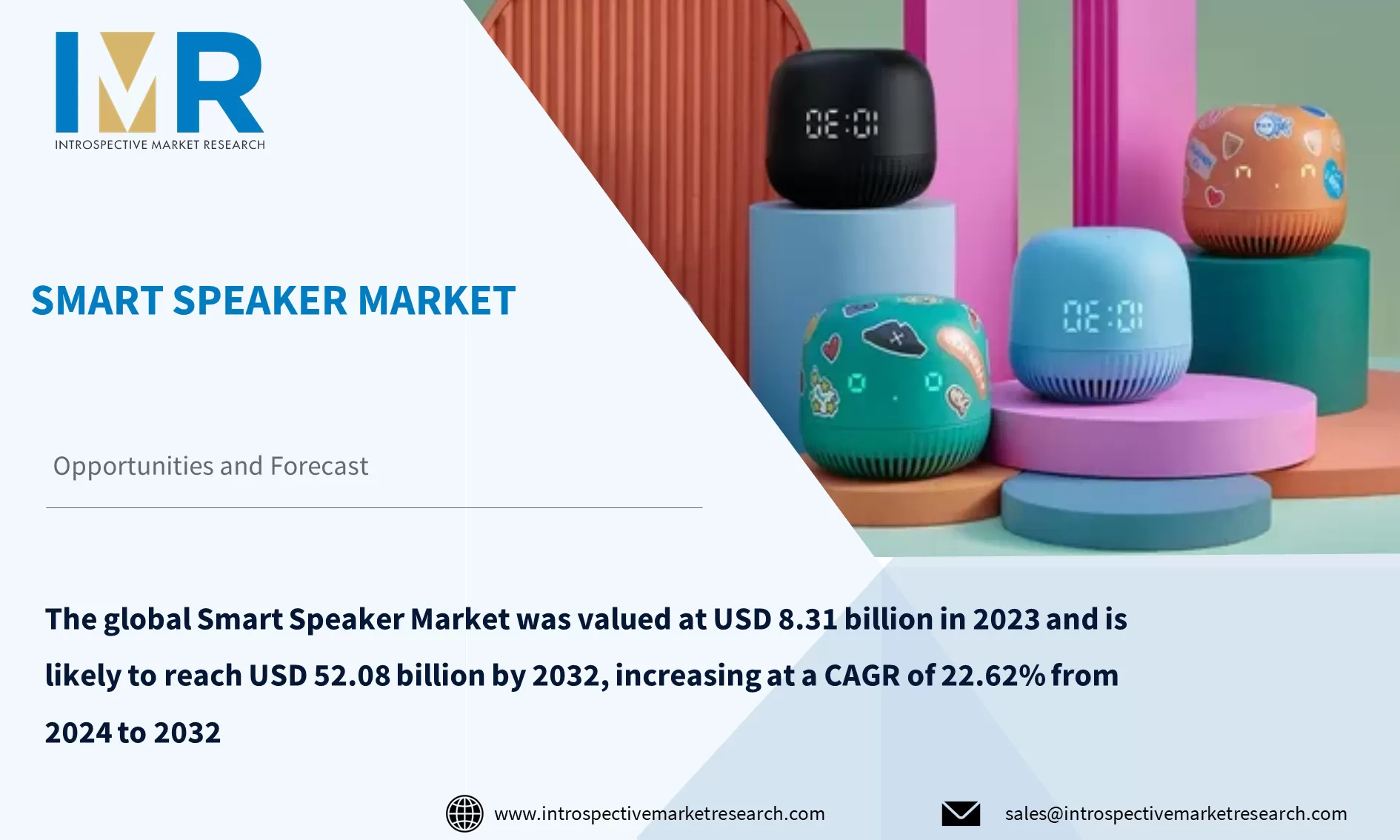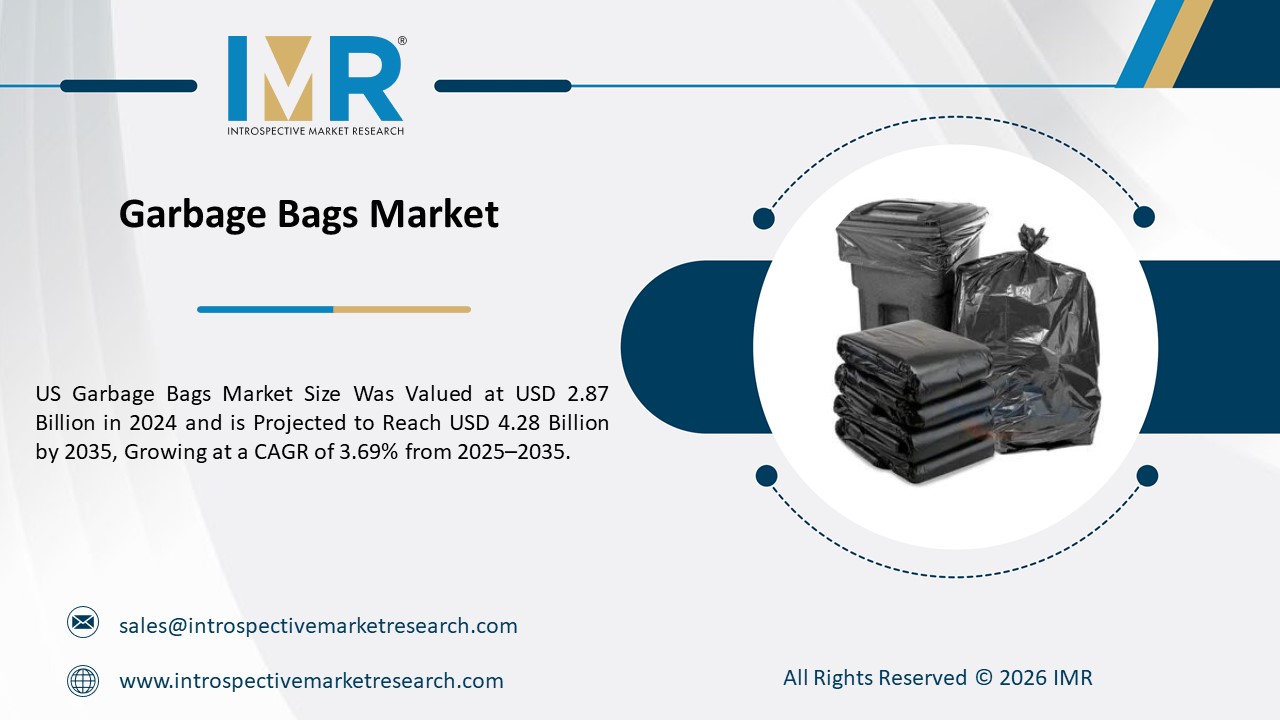Introduction to Smart Speaker market:
The global Smart Speaker Market was valued at USD 8.31 billion in 2023 and is likely to reach USD 52.08 billion by 2032, increasing at a CAGR of 22.62% from 2024 to 2032.
The "smart speaker" category refers to the consumer electronics industry's focus on voice-activated speakers with virtual assistant and artificial intelligence (AI) capabilities. These speakers can respond to voice instructions by providing information and doing several functions. Smart speakers commonly utilize Wi-Fi to connect to the internet.
They can speak with clients by utilizing voice orders to do things like play music, make updates, work brilliant home apparatuses, answer requests, and give traffic, climate, and news refreshes. As these devices become a more integral part of the connected home, a growing trend is the incorporation of smart speakers into smart homes. Shrewd speakers might be utilized to control other brilliant home gadgets like lighting, indoor regulators, and security frameworks utilizing basic voice orders. Clients might control their home climate consistently with brilliant speakers, taking out the requirement for extra applications or distant regulators. The home experience is altered as a result of their integration into smart homes, which enables automation and voice-activated chores. In any case, happy makers and innovation organizations should analyse the moral outcomes of making content for shrewd speakers. As these devices develop more incorporated into day-to-day existence, taking into account the moral ramifications of their creation and use are basic. When creating content for smart speakers, privacy, data security, and the ethical use of personal information are some of the most significant considerations. As innovation propels, we ought to hope to see a lot more blends of brilliant speakers and other shrewd home contraptions.
Convenience and Hands-Free Operation for the customers, with just a voice command, you can play almost any kind of music on smart speakers at any time. In addition, you may play games, listen to audiobooks, and get jokes from Google or Alexa. Your voice can operate your TV, lights, and thermostat when your smart speaker is linked to other smart home appliances. You may be one of the over 8 million adults over 50 who do not gain from social interaction in terms of health if you live alone. Not only can smart speakers provide convenience, but they're also a great way to keep connected and healthy when living alone.
Content creation for smart speakers is becoming more effective and efficient thanks to AI and machine learning, and this trend is anticipated to continue. Content creators may be able to provide viewers engaging and dynamic experiences that were previously unattainable by utilizing these technologies. A voice-activated gadget, the smart speaker combines the features of a virtual assistant with the functionality of a regular speaker. It's considerably more than just an output of sound. Artificial intelligence (AI) and natural language processing (NLP) technologies enable smart speakers to do tasks, entertain, and understand and respond to requests. Simply speaking commands to a smart speaker or using your voice can allow us to access information and handle various aspects of your digital life. Consequently, as technology develops, smart speakers are rapidly becoming essential centres for job management and automation in modern homes.
Global Smart Speaker Market, Segmentation
The Smart Speaker market is segmented on the basis of ) By Virtual Assistance (Alexa, Siri, Google Assistant, Cortana, and others), By Component (Hardware, Software), By Distribution Channel (Online, Offline) and region.
Virtual Assistance:
The type segment is further classified into Alexa, Siri, Google Assistant, Cortana and others. Among these, the Alexa sub-segment accounted for the highest market share in 2023. For several convincing reasons, Alexa from Amazon has become the industry leader in virtual assistant smart speakers. Initially Amazon launched the Amazon Echo with Alexa in 2014 after seeing the potential of smart speakers quickly. Because of its early mover advantage, Alexa was able to establish a solid basis for its market leadership by earning extensive customer awareness and acceptance.
The wide and constantly growing ecosystem of Alexa's skills and connections with other products and services are other factors contributing to its attractiveness. With tens of thousands of skills covering a wide range of tasks including productivity, entertainment, and smart home management, Alexa provides customers with a very flexible and adaptable experience that is catered to their specific requirements.
Distribution Channel:
The application segment is further classified into channels online and offline. Among these, the online sub-segment is anticipated to show the fastest growth by 2032. ? Several e-commerce websites and online shopping portals, including Amazon, Google Yes, there has been a significant increase in the smart speaker industry in recent years. The development of voice recognition technology and the growing incorporation of virtual assistants, like Apple's Siri, Google Assistant, and Amazon's Alexa, has transformed smart speakers from simple music players into information-gathering, control-able hubs for smart home devices, and even places for transactions.
Their ease of use has contributed to their increasing recognition and industrial growth. Online retailers like Amazon, Best Buy, Walmart, and others provide a large selection of smart speaker models and brands at affordable costs.
Region:
The Smart Speaker market in North America is projected to show the fastest growth by 2032. The United States was the first country in North America to adopt smart speaker technology. Upon the first introduction of their smart speaker devices in the US, Amazon and Google gained a significant portion of the market and encouraged early adoption. Smart speaker makers are drawn to the US market because of its sizable and technologically astute customer base. High levels of consumer spending and disposable income fuel the market's expansion and supremacy. With their headquarters located in North America, Apple, Google, and Amazon have an advantage over smaller companies in the smart speaker market. These companies are able to promote adoption because of their vast resources, astute marketing strategies, and well-known brands.
Some of the leading Smart Speaker market players are
- Amazon (United States)
- Google (United States)
- Apple (United States)
- Sonos (United States)
- Bose (United States)
- Harman International Industries (United States)
- Microsoft (United States)
- Baidu (China)
- Xiaomi (China)
- Tencent (China)
Key Industry Developments
- In Aug 2023, Amazon and Google plan to let their voice assistants team up on one device, The first products on the market to do so are the new JBL Authentic speakers from Harman, which now have both Google Assistant and Alexa.
- In Jan 2023, Apple plans a new push into the smart home market, with an improved Apple TV set-top box with a built-in camera and a slim, lightweight smart display under development, Apple is primed to revolutionize smart homes.
Key Findings of the Study
- Convenience and Hands-Free Operation for the customers, with just a voice command, you can play almost any kind of music on smart speakers at any time.
- Content creation for smart speakers is becoming more effective and efficient thanks to AI and machine learning, and this trend is anticipated to continue.
- The wide and constantly growing ecosystem of Alexa's skills and connections with other products and services are other factors contributing to its attractiveness.
- The United States was the first country in North America to adopt smart speaker technology.






